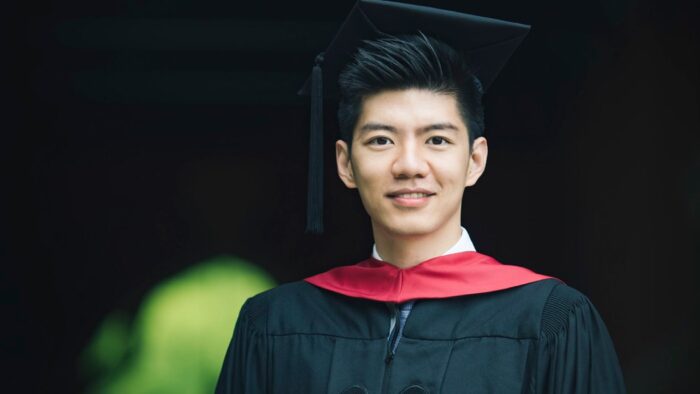Abhinav Seetharaman co-founded a Spoken Sanskrit channel in 2016 along with his Chinese classmate and friend Yang Qu (then at Columbia, now pursuing his PhD in Sanskrit and Tamil literature at Harvard).
They met at a common class they took at Columbia and came up with the idea of initiating an interest in Spoken Sanskrit through a series of conversations in YouTube but structured as a MOOC (Massive Open Online Course).
CSP caught up with Yang to know more about his interest in Sanskrit and Tamil. Yang grew up in China and came to the US for college when he was 18 years old. “At that time, I knew very little about India or Indian languages; but one of the favorite books I read during high school was Ten Years in Germany, a memoir written by Ji Xianlin, one of the earliest Chinese Indologists who studied Sanskrit, Pali, and Tocharian in Germany before he came back to China in 1946,” says Yang.
While a college student at Columbia, Yang “became fascinated by the beauty of Sanskrit and Tamil literature after reading Daniel H. H. Ingalls' Anthology of Sanskrit Court Poetry and A. K. Ramanujan's The Interior Landscape, so I started learning Sanskrit (and later, Tamil)” and he eventually completed his B.A. with a major in South Asian Studies.
The conversations that Yang has with Abhinav are simple and accessible to anyone who wants to know the sound and sense of Sanskrit. Based on his interest in Asian studies, we ask him if he is aware of translations being done of Indian texts into other Asian languages?
“Yes, indeed. Ji Xianlin translated a number of Sanskrit literary works, including Rāmāyaṇa and Abhijñānaśākuntalam. Other scholars such as Jin Kemu, Xu Fancheng, Huang Baosheng, and Ye Shaoyong are also prominent Chinese scholars of Sanskrit literature. I do not think any Old Tamil texts have been translated into Chinese, it is probably something I should consider doing in ten or fifteen years, once I have a solid foundation in Old Tamil language and literature. My current goal in learning Tamil is to be able to read Kamban's Tamil version of the Rāmāyaṇa.”
Yang says he did not grow up in a multi-lingual environment, and English was the only foreign language he studied before coming to the U.S., “so I was really intrigued when I learned about the linguistic diversity of India.” He has fond memories of his visit to India. “I went to India for the first time a few years ago to study Tamil at the American Institute of Indian Studies in Madurai. It was a remarkable experience and I would certainly love to revisit India after the pandemic."





